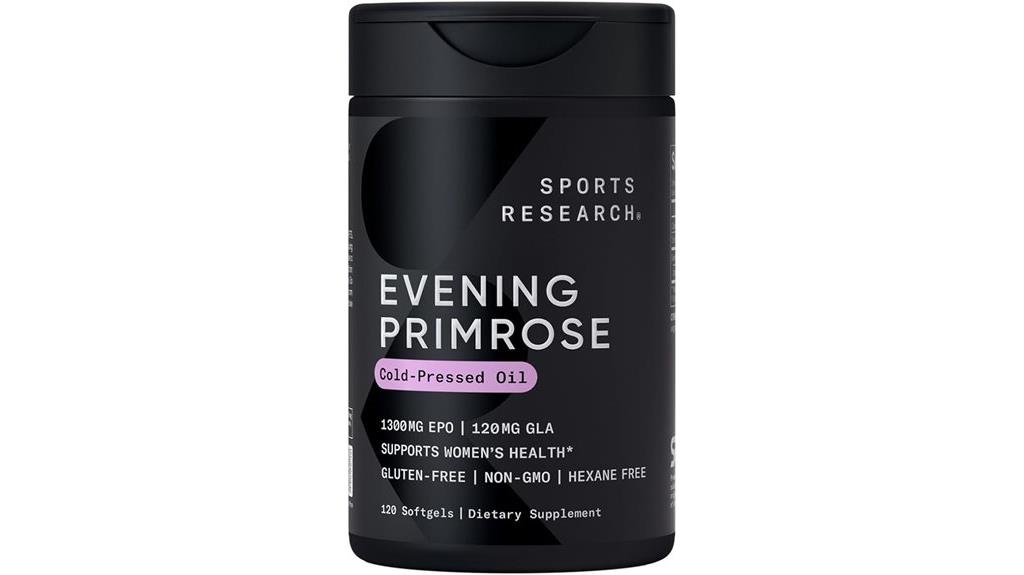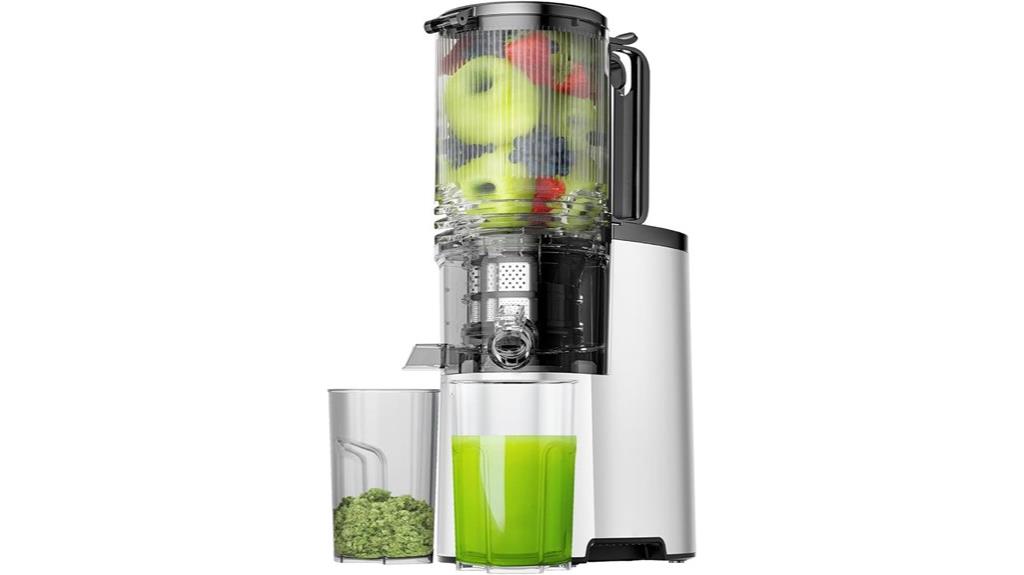As a Black woman, you're facing unique hormonal challenges that can impact your overall health and well-being. From higher rates of uterine fibroids to increased susceptibility to chronic stress, your body's delicate balance requires special attention. But don't worry—there are natural ways to support your hormonal health that can make a world of difference. By understanding the specific issues you're up against and exploring holistic approaches to balance, you'll be better equipped to take control of your hormonal health. Ready to discover how nutrition, stress management, and lifestyle changes can transform your hormonal landscape?
Understanding Black Women's Hormonal Challenges

When it comes to hormonal health, Black women face unique challenges that often go unrecognized in mainstream healthcare. You're more likely to experience certain hormonal imbalances due to a combination of genetic, environmental, and societal factors.
For instance, you're at higher risk for conditions like uterine fibroids, which can disrupt your menstrual cycle and fertility. Polycystic ovary syndrome (PCOS) also affects Black women at higher rates, leading to irregular periods, weight gain, and insulin resistance.
Stress-related hormonal imbalances are another concern, as systemic racism and discrimination can trigger chronic stress responses in your body. Your melanin-rich skin may also impact vitamin D absorption, which plays a vital role in hormone regulation. This can affect everything from your thyroid function to your mood and energy levels.
Additionally, you're more prone to certain autoimmune disorders that can disrupt your endocrine system. Understanding these unique challenges is the first step in taking control of your hormonal health.
Nutrition for Hormonal Balance
Nutrition plays an essential role in maintaining hormonal balance for Black women. Your diet can greatly impact hormone production, metabolism, and overall endocrine function. To support hormonal health, focus on consuming a variety of nutrient-dense foods.
Include plenty of leafy greens, such as collards and kale, which are rich in vitamins and minerals that support hormone production. Incorporate healthy fats from sources like avocados, olive oil, and fatty fish to provide the building blocks for hormones.
Don't forget to add lean proteins, which are vital for hormone synthesis and regulation. Fiber-rich foods, including beans, lentils, and whole grains, can help balance blood sugar levels and support gut health, both of which are essential for hormonal balance.
Consider adding herbs like turmeric and cinnamon, which have anti-inflammatory properties and may help regulate insulin levels. Limit your intake of processed foods, refined sugars, and excessive caffeine, as these can disrupt hormone balance.
Instead, opt for complex carbohydrates and natural sweeteners in moderation. Stay hydrated by drinking plenty of water throughout the day to support your body's hormonal processes.
Stress Management Techniques

Stress management is just as important as nutrition for maintaining hormonal balance in Black women. Chronic stress can disrupt your endocrine system, leading to hormonal imbalances that affect your overall health. To combat this, you'll need to incorporate effective stress-reduction techniques into your daily routine.
Start by practicing mindfulness meditation. Even just 10 minutes a day can notably lower cortisol levels and improve your body's stress response. You can also try deep breathing exercises or progressive muscle relaxation to calm your nervous system.
Regular physical activity is another powerful stress-buster. Aim for at least 30 minutes of moderate exercise most days of the week. This can include activities like brisk walking, dancing, or yoga.
Don't underestimate the power of social connections. Spend time with supportive friends and family, or consider joining a support group for Black women dealing with hormonal issues.
Prioritize sleep by establishing a consistent bedtime routine and creating a relaxing sleep environment. Adequate rest is essential for hormonal balance and stress reduction.
Lastly, consider journaling or talking to a therapist to process your emotions and develop healthy coping strategies for stress.
Exercise and Hormonal Health
Exercise plays an essential role in maintaining hormonal balance for Black women. Regular physical activity can help regulate your body's production of hormones like estrogen, progesterone, and cortisol.
It's particularly beneficial for managing insulin levels, which is vital given the higher risk of diabetes in the Black community. Aim for a mix of cardio and strength training exercises.
Cardio activities like brisk walking, jogging, or dancing can boost your mood and reduce stress hormones. Strength training, such as weightlifting or bodyweight exercises, helps build muscle mass and supports healthy testosterone levels.
High-intensity interval training (HIIT) can be especially effective for hormonal balance. It stimulates the production of growth hormone and can improve insulin sensitivity.
Yoga and Pilates are also excellent options, as they combine physical activity with stress reduction techniques.
Sleep and Circadian Rhythm

While exercise is key for hormonal health, it's not the only factor. Sleep and your circadian rhythm play vital roles in maintaining hormonal balance. Your body's internal clock regulates the release of various hormones, including melatonin, cortisol, and growth hormone.
To support your circadian rhythm, establish a consistent sleep schedule. Aim for 7-9 hours of quality sleep each night. Create a relaxing bedtime routine and avoid screens at least an hour before sleep, as blue light can disrupt melatonin production.
Make your bedroom a sleep sanctuary: dark, quiet, and cool.
During the day, expose yourself to natural light, especially in the morning. This helps regulate your body's production of melatonin and cortisol. If you work night shifts or have an irregular schedule, consider using blackout curtains and a light therapy lamp to mimic natural light patterns.
Be mindful of your eating patterns, as they can affect your circadian rhythm. Try to eat your meals at consistent times and avoid large meals close to bedtime.
Herbal Remedies for Hormone Support
For centuries, Black women have turned to herbal remedies to support their hormonal health. These natural solutions can help balance your hormones and alleviate symptoms associated with menstrual cycles, menopause, and other hormonal imbalances.
Black cohosh is a popular herb known for its ability to reduce hot flashes and night sweats during menopause.
Chasteberry, also called vitex, can help regulate menstrual cycles and ease PMS symptoms.
Red clover is rich in isoflavones, which may help with menopausal symptoms and bone health.
Ashwagandha, an adaptogenic herb, can help manage stress and support adrenal function, both vital for hormonal balance.
Maca root is known to boost energy and libido while supporting overall hormonal health.
Evening primrose oil contains gamma-linolenic acid, which may help with breast pain and skin health.
When considering herbal remedies, it's important to consult with a healthcare provider, especially if you have existing health conditions or are taking medications.
While these herbs can be beneficial, they're not one-size-fits-all solutions. Your provider can help you determine which herbs are safe and appropriate for your specific needs and health goals.
Environmental Toxins and Hormones

Environmental toxins pose a significant threat to hormonal health, particularly for Black women. You're exposed to these harmful substances daily through air pollution, contaminated water, and chemical-laden products. These toxins can disrupt your endocrine system, leading to hormonal imbalances and various health issues.
To protect yourself, start by being mindful of your environment. Avoid using plastic containers for food storage and opt for glass or stainless steel instead. When choosing personal care products, look for those free from parabens, phthalates, and other hormone-disrupting chemicals. Consider investing in a high-quality water filter to remove contaminants from your drinking water.
Your diet plays a vital role in combating environmental toxins. Consume organic produce whenever possible to reduce exposure to pesticides. Incorporate detoxifying foods like leafy greens, cruciferous vegetables, and berries into your meals. These nutrient-dense options support your body's natural detoxification processes.
Regular exercise helps flush toxins from your system through sweat and improved circulation. Aim for at least 30 minutes of moderate activity most days of the week.
Additionally, prioritize quality sleep to allow your body time to repair and regenerate, further supporting hormonal balance.
Mind-Body Practices for Balance
Achieving hormonal balance isn't just about physical health—it's equally important to nurture your mental and emotional well-being. Mind-body practices can play a vital role in regulating hormones and reducing stress, which is particularly beneficial for Black women who may face unique stressors.
Incorporating mindfulness techniques into your daily routine can help you manage cortisol levels and promote overall hormonal balance. Consider these practices:
- Meditation: Start with just 5-10 minutes daily to calm your mind and reduce stress hormones.
- Yoga: Combine gentle movement with breathwork to support your endocrine system.
- Journaling: Express your thoughts and emotions to process stress and promote emotional well-being.
These practices can help you tune into your body's needs and identify potential hormonal imbalances early on. They also provide a space for self-reflection and self-care, which are essential for maintaining hormonal health.
Supplements for Hormonal Well-being

When it comes to supporting hormonal health, certain supplements can play an important role for Black women.
Vitamin D is vital, as many Black women have lower levels due to melanin's effect on absorption. Consider taking a daily vitamin D supplement to support bone health, immune function, and mood regulation.
Omega-3 fatty acids, found in fish oil supplements, can help reduce inflammation and support hormone production. They're particularly beneficial for managing PMS symptoms and promoting heart health.
Magnesium is another important mineral that aids in hormone balance, stress reduction, and sleep quality. You'll find it in supplement form or in foods like leafy greens and nuts.
For those dealing with PCOS or irregular cycles, inositol supplements may help improve insulin sensitivity and regulate menstrual cycles.
Adaptogenic herbs like ashwagandha can support adrenal function and help manage stress-related hormonal imbalances.
Before starting any supplement regimen, consult with your healthcare provider. They can help determine which supplements are most appropriate for your specific needs and confirm they won't interact with any medications you're taking.
Join The Discussion
How are you supporting your hormonal health naturally? Share your favorite tips, lifestyle habits, and go-to products to inspire and educate others!

Empower your wellness journey with these natural products that support hormonal balance and cater to the unique needs of Black women.






